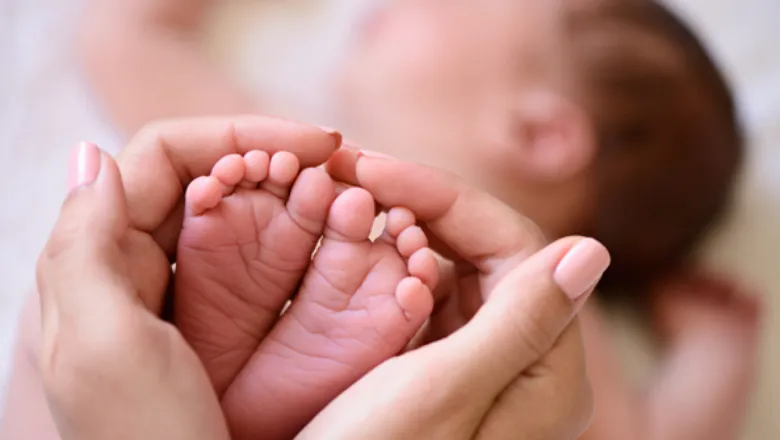Using longitudinal qualitative methods, the study looked at the care pathways for women who are dependent on drugs perinatally. The paper focuses on women's experiences of care prenatally, and highlights their anxiety concerning social work referrals and the potential loss of their babies to the care system.

Published in The British Journal of Social Work, the study's findings may have implications for how services engage with women who use drugs in the perinatal period and calls for approaches that are responsive to the needs of women and those of their babies. Alongside King's College London, the study team was comprised of researchers from University of Stirling, University of Huddersfield and Homerton Health Care. The study was funded by the National Institute of Health and Social Care Research (NIHR).
There is little knowledge of how women who use and are in treatment for using drugs in the perinatal period experience multidisciplinary services prenatally. This study used qualitative longitudinal methods to explore women's experiences of care in four sites in England and Scotland. Thirty-six women who used and were in treatment for drug use (opioid, stimulants and benzodiazepines) were recruited via maternity services. Importantly, most participants for whom this was not their first maternity, had had previous children removed from their care.
The findings focus on women's experiences of surveillance and uncertainty surrounding referrals to social services, social work assessments and possible removal of babies. Research participants reported managing the stigma of treatment for opioid use and its association with illicit drug use. The sample included participants who had experienced a range of co-occurring and interrelated physical and mental health problems, intimate partner violence and histories of child abuse. Women frequently reported feelings of guilt and shame concerning their drug use, anxiety concerning the impacts of drug use and treatment on their babies and uncertainty concerning social care decisions about whether they would retain care of their babies.
We carried out longitudinal interviews with women who were in treatment for drug use in pregnancy in four sites in England and Scotland. In this paper we explore their experiences of services prenatally. Women who had had previous children removed from their care were particularly anxious about social services involvement in this pregnancy. Despite longstanding recommendations for trauma informed care for this group of women, our findings illustrate that multi-agency, child protection led approaches can retraumatize already anxious women prenatally, are experienced as intrusive and overwhelming, and may be counterproductive.
Dr Polly Radcliffe, Senior Research Fellow, Department of Addictions Sciences, King's IoPPN
Participants described being subject to multi-agency monitoring and there were few examples of trauma informed care at the point of delivery. Although it is now a cliché to suggest that pregnancy for those who use and are in treatment for drug use is a 'window of opportunity' for drug treatment services, this study found that whilst pregnancy had ben the impetus for engaging with substance use and maternity services, for others the fears of social services involvement and previous experience of having a child removed led them to concealing their substance use.
The findings of this study have implications for how multi agency services engage with women who use drugs and call for approaches that are responsive to their needs and those of their babies. By attending in a rigorous and sensitive way to the fears and hopes of these women, and highlighting the structural challenges that they face, the research contains important pointers for practices that do not further reinforce their marginalisation and promote humane and socially just approaches. As part of embedding this awareness in practice, researchers have been using transcripts with women from the study as the catalyst for work with Outside Edge Theatre Company, to produce a piece of theatre that hopes to build connection and understanding in this area. The piece will be performed for audiences of midwifery and social work students and practitioners in London and Sheffield in December 2026.
Polly Radcliffe, Emma Smith, Shirley Lewis, Louise Honeybul, Lynne Gilmour, Margaret Maxwell, Joanne Neale, Brid Featherstone, Mariana Gonzalez Utrilla, Narendra Aladangady, Helen Cheyne, Navigating surveillance: The experience of prenatal women who use or who are in treatment for using drugs, The British Journal of Social Work, 2025;, bcaf161, https://doi.org/10.1093/bjsw/bcaf161






